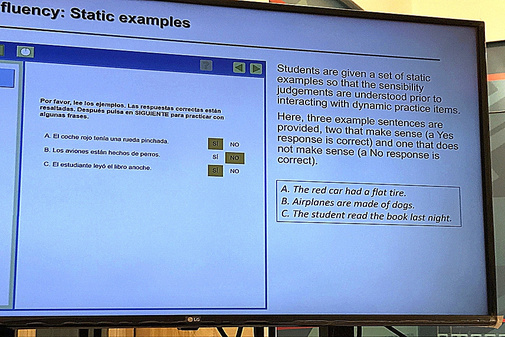- Education: Spanish students are more than two academic courses behind the Chinese in the PISA report
- Study: Spain is the country where students have the greatest feeling of belonging to the school of the entire OECD
- Opinion: Estonia and Poland replace Finland in educational excellence
- Controversy: The shadows of PISA: Should we believe the report after the errors detected?
Catalonia joined the Community of Madrid yesterday in its crusade to demonstrate that the anomalies detected by the OECD in this edition of the PISA Report are more serious than what this international organization reveals. Both regions attributed their poor results to the poor "reliability" of the evidence and questioned the "quality" of the evidence. They are two antagonistic communities from an educational point of view, but here they are in tune and have become the new visible heads of pisaescepticism , a movement that, until now, has harvested its followers among left-wing voters.
In Spain , the Reading results have not been published this year because errors have been found that affect at least 5% of students in twenty questions in a new section called Reading Fluency . The head of Data Analysis of PISA, Miyako Ikeda , did not want to explain yesterday during the presentation of the results in Madrid what is the origin of these failures. Nor did he want to specify what exactly the communities are, in addition to Madrid and Catalonia, where the students responded abnormally and mistakenly to a good number of questions.
What he did do was put some slides with the kind of questions where the failures occurred. These questions are confusing and have a poor translation, as seen in the image. The instructions in Spanish are not as clear as in English and may be misleading, as it seems that students are doing a "practical" phase, in the sense of training, which does not count for the exam.
It is also not clear how such short questions can measure reading fluency. In them the students were supposed to answer if they saw logical phrases like "The red car had a flat tire", "The planes are made of dogs" or "The student read the book last night". But many responded to Tuntun and that is why the OECD quarantined the Reading data.
Another thing that is not understood is why the OECD downplays the failures as these defective questions of reading fluency (21) cover more than half of the test, consisting of 38 issues, as Ikeda revealed yesterday.
The Community of Madrid requested that not only the Reading results, but also those of Mathematics and Science be withdrawn because, as they have been obtained from an extrapolation of the Reading notes, they believe they are also "contaminated." This region has taken a huge blow in this edition: it loses 29 points in Science and 20 in Mathematics . The sources consulted ensure that the drop in Reading was even greater and that was what led them to investigate the data.
Of the 38 questions that the Reading test had, there are failures in at least 21
The Madrid Minister of Education, Enrique Ossorio , said yesterday that they do not give "validity" to the results because "they do not reflect the level of the students." "The data is absolutely incredible and absurd," he said, censoring the "obscurantism" of the OECD, "a mysterious black box."
Catalonia, which has dropped 10 points in Mathematics and 15 in Science, called into question the "reliability" and "quality" of the report, sources from the Department of Education told Efe. "We understand that if the OECD is not sure of the quality of the data, it was more logical to withdraw all the results, since all were subject to doubt, and wait for new analyzes that they promised before publishing them," these sources complained.
This argument, shared by Madrid, makes sense, because the OECD acknowledges in writing that the results in Mathematics and Science also "seem to be affected", although "less" than Reading, although verbally denies that there is any error in these two areas.
The Secretary of State for Education, Alejandro Tiana , puts his hand in the fire for PISA and positions himself on the side of the OECD: «From the technical point of view of the reliability of the operation, I have no doubt. It is a scientifically and technically sound system, ”he said yesterday.
According to the criteria of The Trust Project
Know more- OECD
- Catalonia
- Madrid
- Madrid's community
- Spain
- PISA report
- Education
Education The Community of Madrid asks the OECD to withdraw the entire PISA report for "errors of a considerable caliber": "The whole test is contaminated"
EducationThe shadows of PISA: should we believe the report after the errors detected?
Culture Low culture spending in Spanish households by 5%

